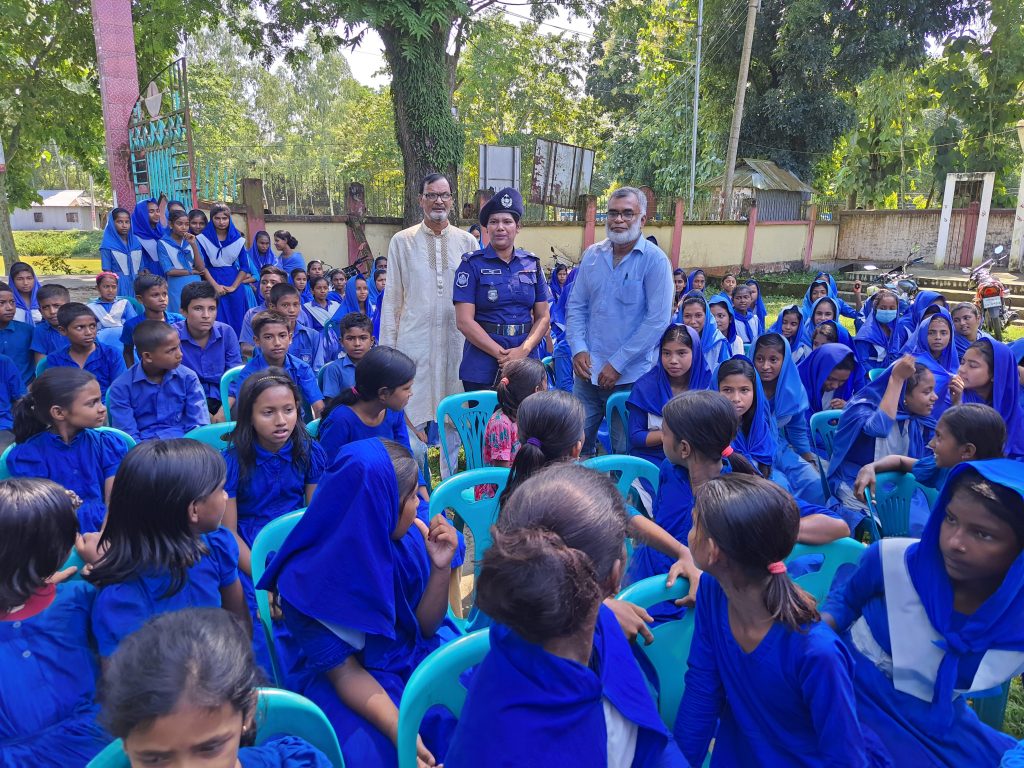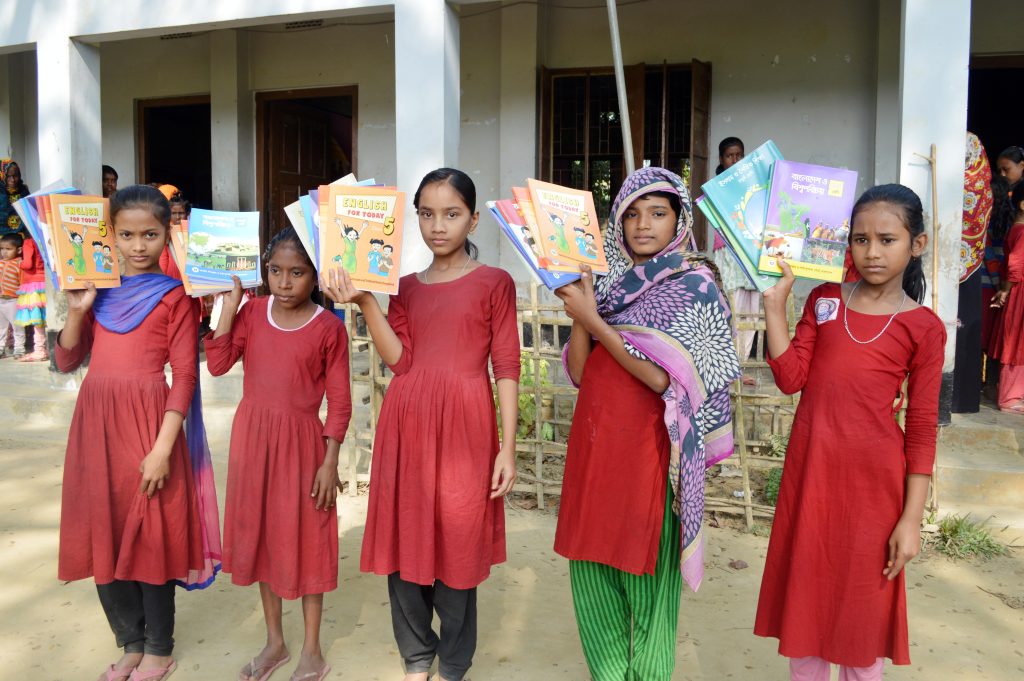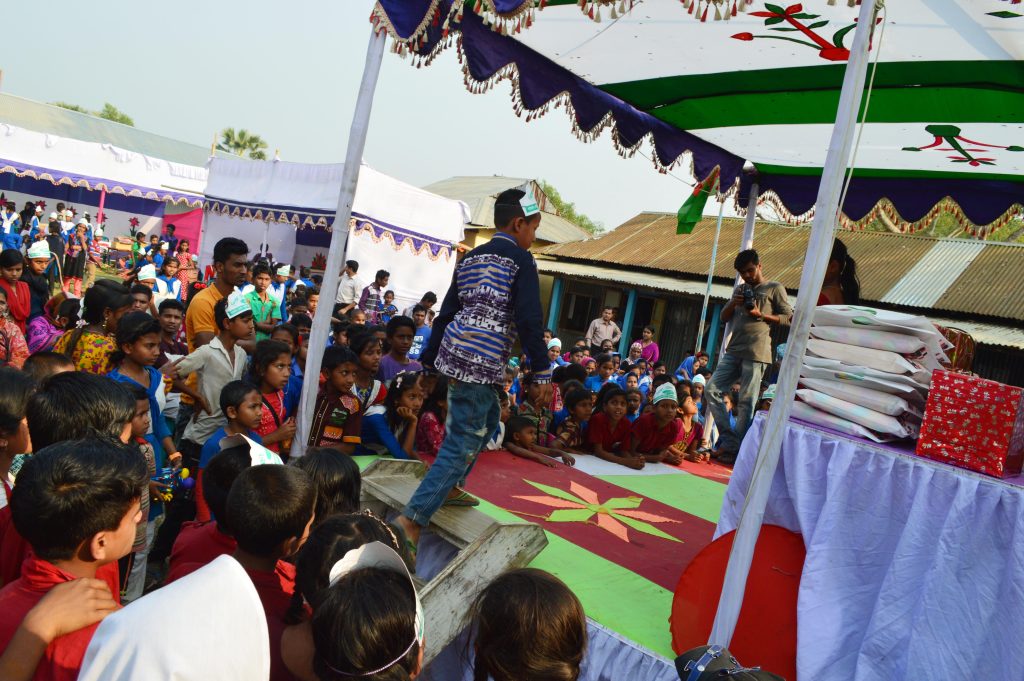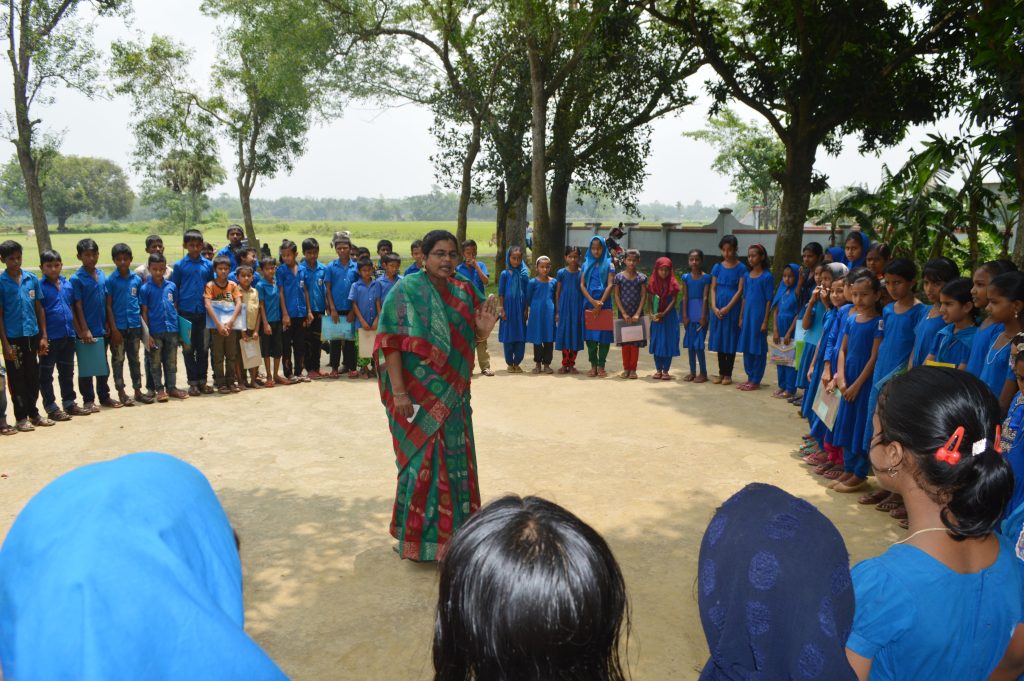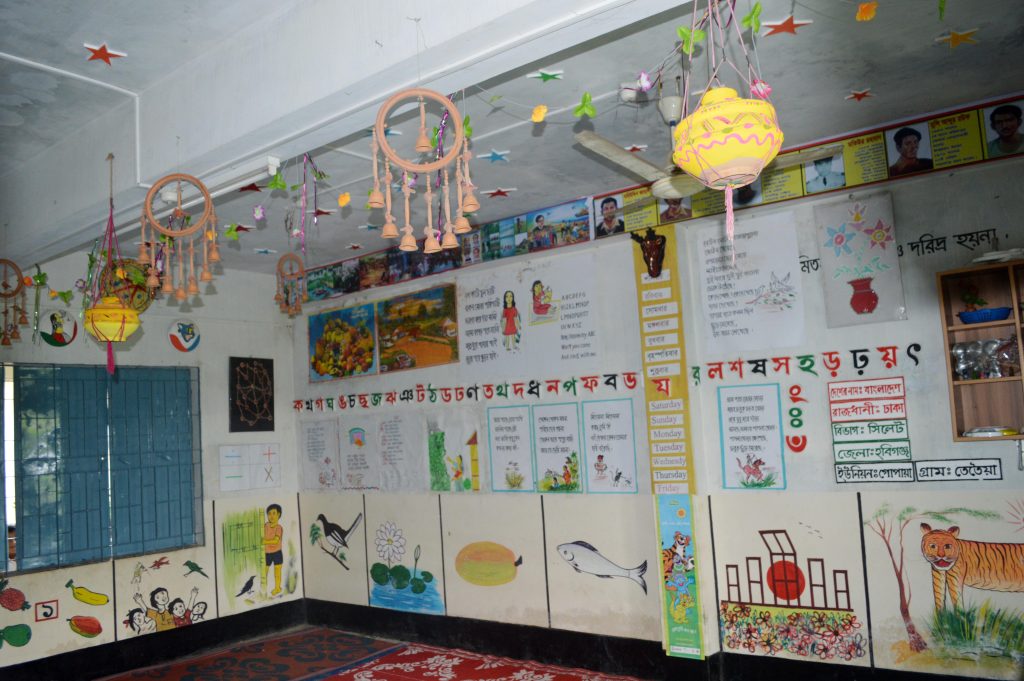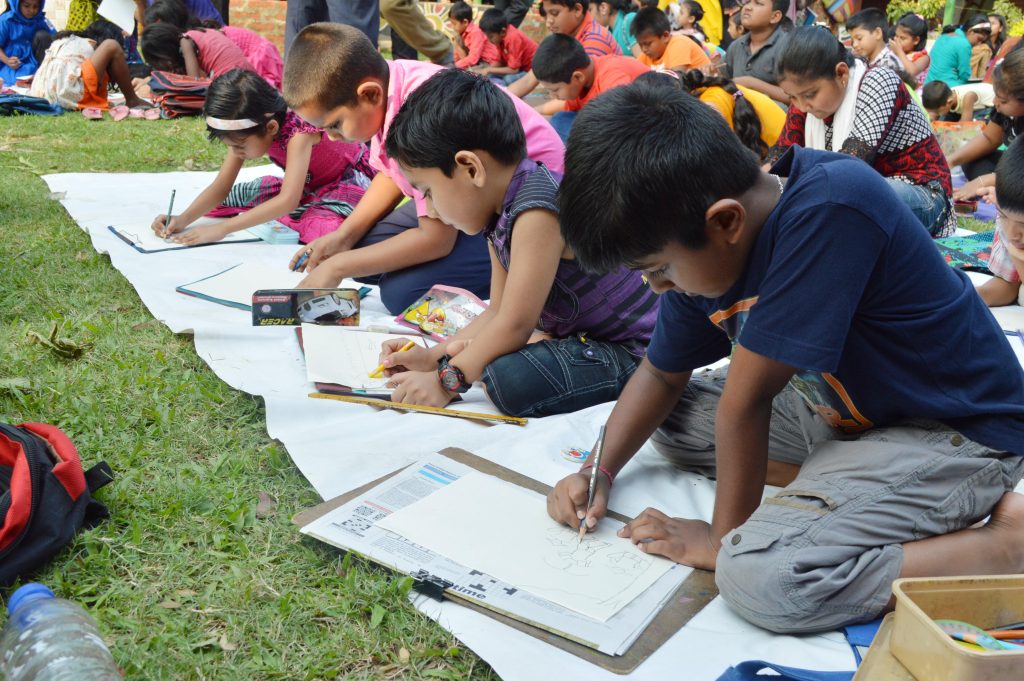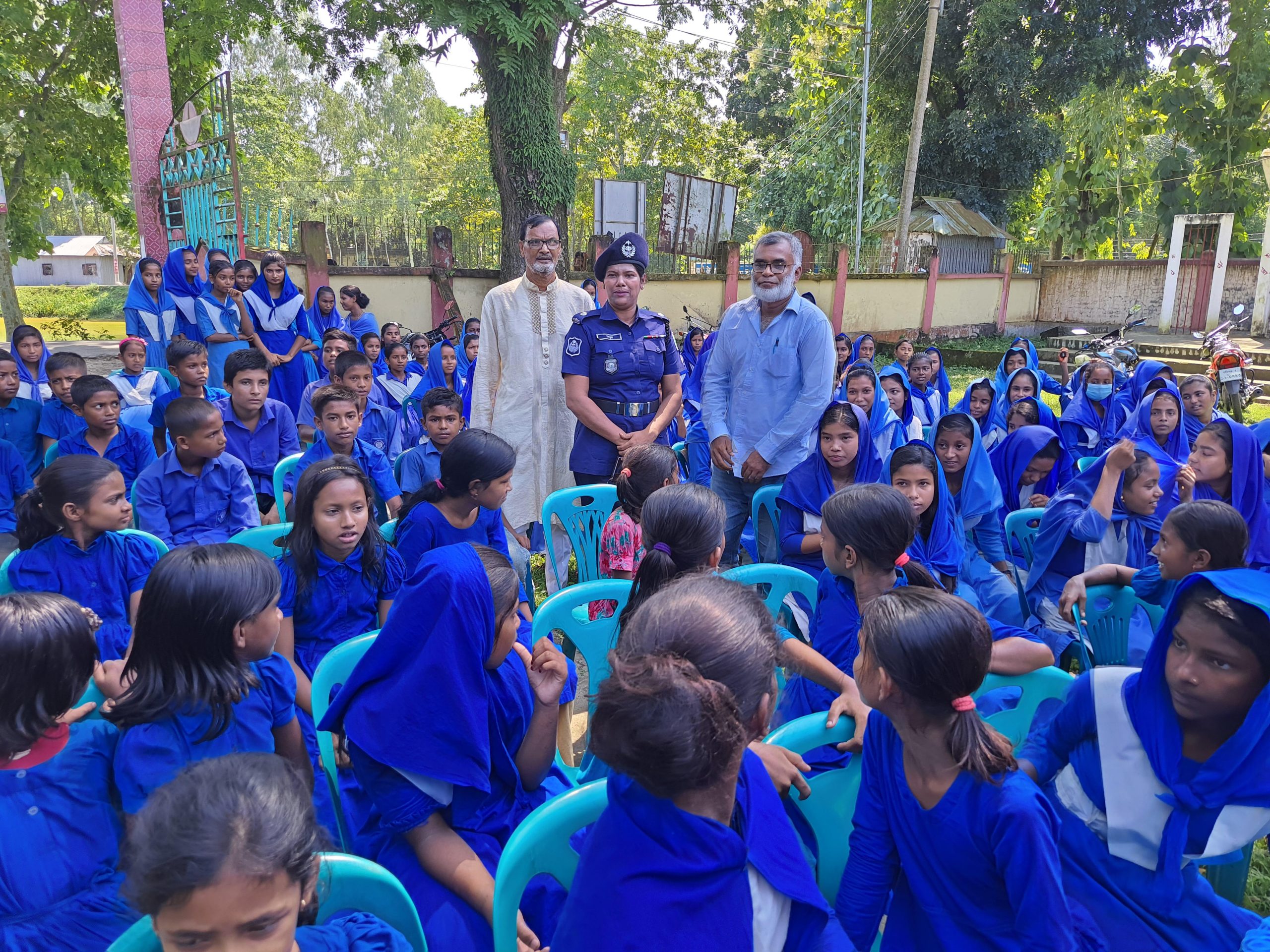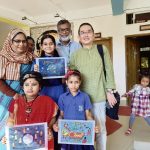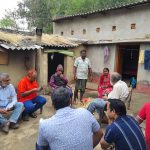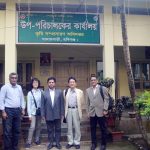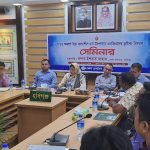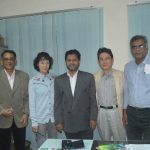Influence schools and sub-national and national decision makers towards a more gender-responsive, climate-resistant and digitally-oriented secondary education environment in Bangladesh.
This project is implementing with the funding of Malala Fund in association with Campaign for Popular Education (CAMPE).
“Empower girls through influence national policy and practice change discourse for gender-responsive, climate resilience, and digitally-oriented secondary education in Bangladesh”. The major outcome of the project would demonstrate enhanced equitable access to safe, quality education for girls and boys during and the post-pandemic situation in 4 schools in Baniyachong Upazila under Habigonj District of Bangladesh. It is expected that these schools will have an integrated system for disaster response mechanisms that enhance the resilience among boys and girls at the secondary level. They will also demonstrate reducing the digital divide between boys and girls through increased use of teaching-learning process including the co-curriculum activities.
The project will demonstrate and contribute to influence the policymakers to adopted innovative approach to reduce the inequality: 4 secondary schools will be directly benefited from the interventions that will demonstrate increased access to girls and retain them in the secondary level education institutions.
At the sub-national level to influence the practice to influence the behavior of the District and sub-district level Education officers, Head Teachers and School Management Committee. In some cases there taboo among the parents that ICT devise may lead to derail the adolescents – that will also be addressed through co-curriculum activities. The first set of interventions will demonstrate how community could be one of the most influential factors for bring back to school, particularly for the girls are at risk of being dropouts or already dropped.
The project interventions will contribute to enhanced equitable access to safe, quality education for girls and boys during the post-pandemic situation in 4 schools in Habiganj districts in Bangladesh.
